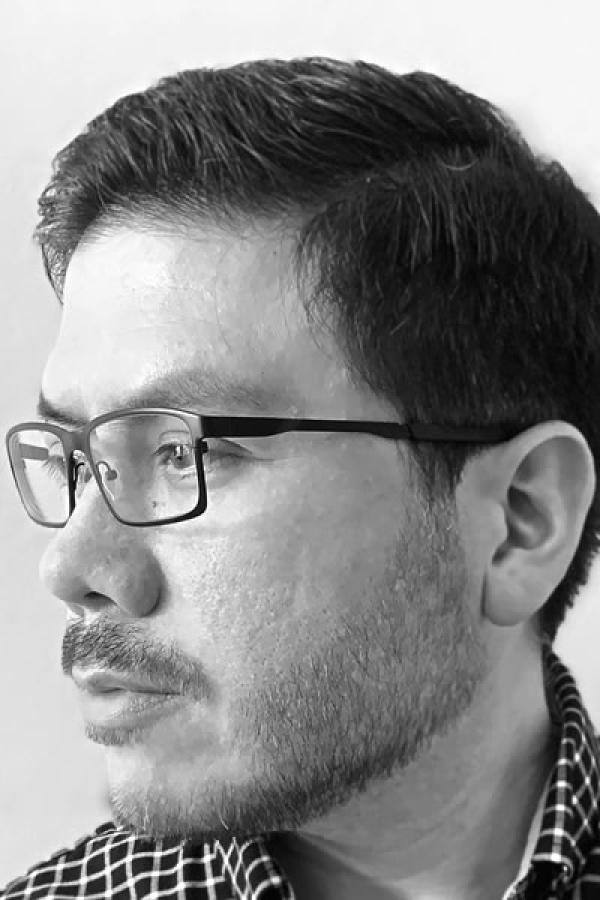Rodney Gomez

Photo by Gemma Azul Gomez
Bio
Rodney Gomez is a poet and urbanist. A member of the Macondo Writers Workshop, he served as the 2020-2021 McAllen, Texas, Poet Laureate. He is the author of Arsenal with Praise Song (Orison Books, 2021), winner of the Helen C. Smith Memorial Award for best book of poetry from the Texas Institute of Letters and the Writers’ League of Texas Book Award; Geographic Tongue (Pleiades Press, 2020), winner of the Pleiades Press Visual Poetry Series; and Mouth Filled With Night (Northwestern University Press, 2014), winner of the Drinking Gourd Chapbook Prize. His honors include an Academy of American Poets Poet Laureate Fellowship, a Mellon Arts & Practitioner Fellowship from Yale University, and a De Groot Foundation grant. His work has appeared in Poetry, New England Review, the Gettysburg Review, North American Review, Denver Quarterly, Poetry Daily, and elsewhere. He lives with his family in the Rio Grande Valley of Texas.
Violence as policy, and therefore as acceptable practice, is not confined to the desert or the border. It seeps into urban spaces, into anywhere people decide to make lives. I began to think of other forms of state-sanctioned violence along the border in events like La Matanza, the killing of hundreds of Mexicans by the Texas Rangers. I’ve been thinking about cities, towns, and other places where violence is hidden in built structures, in roads and walls. This fellowship will support that continued exploration.
I am so grateful to the National Endowment for the Arts and the many others who have supported my work over the years. At this point in my career, this award means permission to continue. It means validation of the work I’ve done. I am neither a full-time poet nor an academic, and I squeeze every precious minute from an average day to write. This award means I can carve out valuable time to travel and develop new poetry, visual poetry, and lyric essays. Thank you.

